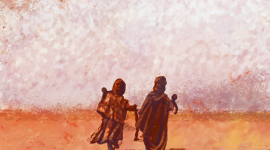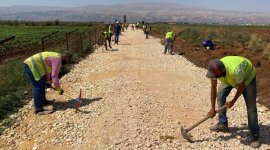The Global South-South Cooperation Forum: Boosting employment and inclusion for vulnerable groups through digital technologies

Online
The Global South-South Cooperation Forum: Boosting employment and inclusion for vulnerable groups through digital technologies
10–13 October 2022
The course is available in English
Introduction to the course
New technologies are continuously transforming the world of work. They are transforming not only the way we work but also why we work as workers and employers. Technologies can play an instrumental role in generating decent work opportunities. The increasing adoption of Information and Communications Technologies (ICTs) in everyday life, combined with the growing marketplace for digital goods and services, are providing new work opportunities, many of which can be extended to semi- and low-skilled workers. For instance, by integrating innovative technologies in their operations, public infrastructure investments can increase their effectiveness, achieving their employment and asset creation objectives. An increasing number of governments are promoting e-governance to simplify and facilitate the transition from the informal to the formal economy. Digital technologies do not necessarily have to be those of innovative high-tech products: in fragile contexts, even a simple electronic payment system with a mobile phone, for example, can significantly enhance the effectiveness of cash-based interventions and reduce security concerns deriving from cash hand-over in a large sum. Simultaneously, technologies also pose a number of threats, including but not limited to, job losses due to automation and growing inequalities. Unless enterprises, governments, policy-makers, workers and jobseekers proactively respond and adapt to these fast-encroaching technologies, opportunities may be lost and numerous industries may find themselves unprepared for the consequences. The Second Edition of the Global South-South Cooperation Forum is organized in collaboration with the ILO Development Investment Branch (DEVINVEST). It aims to foster the exchange of good practices, knowledge, and experiences, applied in the Global South to improve the livelihoods and create employment opportunities through innovative and digital solutions, as well as to boost discussions on labour market issues posed by new technologies.
Who attends this course?
The Forum targets professionals interested in leveraging the employment opportunity-generating potential of digital technologies and learn more on digitally inclusive practices. The Forum specifically targets: - Government officials operating at the local, provincial and national level; - ILO, UN staff and development practitioners; - Donor organizations who are working or would like to work on digital employment and digital inclusion; - Public investment and employment policy advisors; - Research and education institutions.
Learning aims
- Share experiences on how different countries and organizations are using technologies to boost decent employment creation
- Examine specific challenges brought about by new technologies as well as possible solutions
- Learn about the potential of how digital technologies can support public infrastructure investments to increase their effectiveness, achieving their employment and asset creation objectives
- Explore how digital technologies and e-governance can enhance the impact of institutional public policies addressing informality
Methodology
The Forum will be held online from 10 to 13 October 2022. Each day participants will have access to two live online sessions of 90 minutes each.
The Forum will be conducted using a highly participative methodology, through a combination of pre-identified south-south good practices followed by group discussions where participants will be asked to share solutions and experiences that are already in place. Participants will have access to the ITCILO eCampus where they will be able to interact with other participants and access the recordings of the Forum. Before the beginning of the Forum, participants will have access to an online library with several background documents and reference materials.
Contents
The Forum covers the following four topics:
Day 1: Digital technologies and the future of work
Day 1 will set the scene and provide an overview of how digital technologies are transforming the whole world of work. This session will critically examine whether and how they can be perceived as a threat to certain types of works, or provide an opportunity for societies that are more inclusive. Participants will start to get to know each other and examine some of the opportunities and challenges brought about by the digital economy.
Day 2: Digital technologies and public infrastructure investment
Digital technologies have been integrated into public infrastructure investment projects throughout the project cycle to facilitate the collection and processing of necessary data to plan, implement and monitor, as well as to e-procure goods and services and to evaluate a project. During Day 2, the ILO’s Employment-Intensive Investment Programme will share experiences with several concrete examples from different countries in leveraging digital technologies to deliver results more effectively and efficiently and negate the misperception that labour-intensive works cannot co-exist with digital technologies.
Day 3: Digital technologies and the transition to formality
Day 3 will focus on how digital technologies can be an opportunity for the transition to formality, enhancing the impact of employment policies addressing informality, through “e-formalization”. It will present concrete cases, tools and public-sector practices from different countries where technologies have already been implemented directly or indirectly for the transition to formality.
Day 4: Digital technologies and the path to resilience
Day 4 focuses on digitally inclusive practices that promote peace and resilience through the world of work. It will present cases, practices and digital tools that support an employment-centred recovery from crises and contribute to building the resilience of people caught in fragile, conflict and disaster situations.
Fees
Tuition: €920 -a limited number of scholarships is available to applicants from developing countries with qualifications relevant to the main topics and objectives of the Forum


